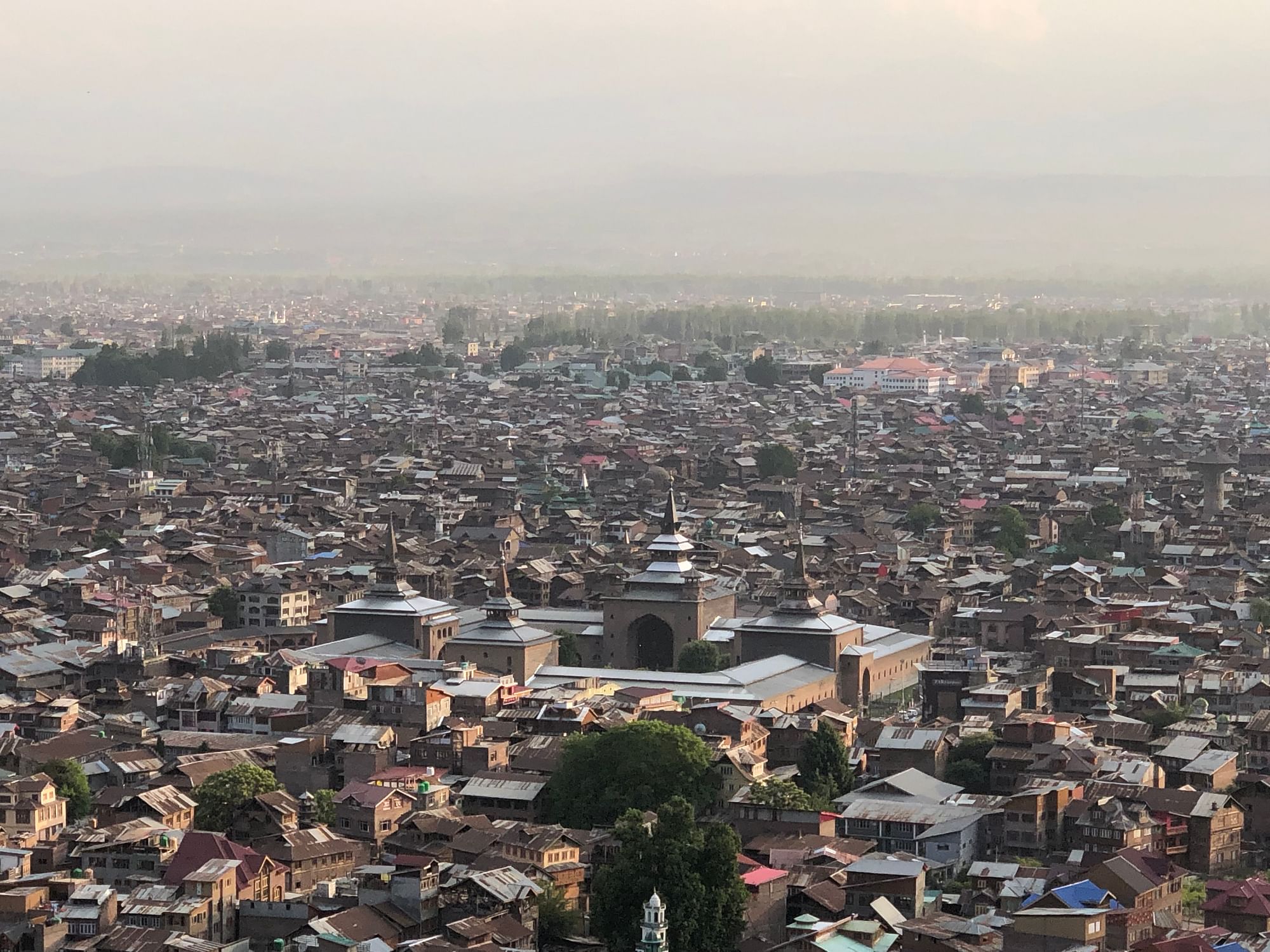Kashmir is in search of relevance. There are struggling to navigate their way to the pedestal where they are viewed and understood as Kashmiris, in which they see reflection of theirs as clearly as they want.
It has some idea as to how it can be achieved, but at the same time the whole trajectory is amorphous as continuous shifting of goalposts, they believe, has undermined their importance and relevance.
They want the real spirit of unity in diversity – the core idea of India to be upheld in letter and spirit.
Things do change with times, and the newer goals emerge on the horizon. But there is need of time and space from one step to the next. It is a marathon, not a story of long jumps all the time.
These goal posts need to be defined by the people of Jammu and Kashmir, for one of the core issue is that this place has its strategic value and it will continue to be so for the times to come.
The strategic value has to be weighed beyond the geography where it is located, the contest that Pakistan has mounted since 1947, but also it should be reflected because of internal dynamics.
Its geographical area reduced to 42,241 Sq kms – from 1,01,387 Sq. Kms (with its bifurcation into two union territories, Ladakh as a separate UT with 59,1146 Sq. Kms, has not minimised its importance. J&K defines its own place and narrative within the Indian nation and also beyond the land.
Political part apart, let’s take example how the unprecedented tourist footfall in Kashmir this year was peddled as heralding of much-awaited peace/normalcy and enriching of economy.
The country repeated it a number of times, to tell the audience at home that how it has brought about this pleasant change, and also to tell the world that Kashmir was embracing these changes.
The ground sentiment in Kashmir vis-à-vis tourism is reflective of what the State has been saying and claiming. “ Things are good, we have had a good tourist season, and we are waiting for more tourists,” is the common refrain from those associated with tourism, from a taxi driver to Shikarawalla.
In fair analysis, it defines two things that the tourism, most visible economic activity in Kashmir, has revived hopes of the masses for greater economic activity, and for the State, this is a story to be told and retold to the people within Kashmir, the rest of the country, and to the world.
The sustainability of these optics which capture a lot of reality depend on lifting fear of disruptions and it also needs time-space. These aspects gain more importance as there are many issues, about which the people feel strongly, are still unbridged.
What Kashmir needs is a sincere effort in helping it find what it is searching for. There should be an open-house discussion, in which each and every player, or as we have developed a favourite phrase, “stakeholder” be given an opportunity to spell out ingredients of the road ahead. The essence of this effort should be search for permanent stability and relevance without injecting any prejudices in the discourse.
There are certain fundamentals of this mechanism – acceptance of the reality wherein the selective prisms should be replaced by the holistic view of the landscape.
The traditional way of picking up one narrative over the other in selective manner should be shunned. And there is no harm in listening to others, if they have certain ideas that can help in clearing the air. The convergence of the ideas will yield fruitful results.
Kashmiris know, to a large extent, how can they achieve their relevance. We often make a mistake in acknowledging their importance only through one particular route – that is political. No one can dispute in his or her right senses importance of the political pathways but equally important is economy.
The political stability needs to move in lockstep with the economy, and any imbalance can create horrendous situations. There are lessons splattered all over. We have seen it happening in our neighbourhoods.
One of the big tragedies of Kashmir has been that politics was seen as the sole driving force to build destiny of the masses. The misleading campaigns obscured the real goals – the welfare of the people and future of their children.
Kashmiris know it, but many have taken advantage of their over-flowing emotions. The goal posts have been shifted from time to time, and some have drawn sadistic pleasure of their temporary success in this exploitation because it helped them to flourish.
This fact needs to be understood. Until or unless the prosperity of all the people of Kashmir is made as a goalpost, gap holes will continue to stare.
It is very important for Delhi to study the situation from time to time, take a pause to grasp the messages emanating from the Valley and the rest of the Union Territory, both as a result of the initiatives or actions it has taken as also how these have been received in J&K.
The analysis would help it devise its steps in line with the local aspirations. For the people in J&K, especially the narrators, also need to study each and everything in proper perspective, without jumping to conclusions which, they often change themselves.
The true spirit of federalism should be upheld by all the sides and that is one of the ways to keep Kashmiris relevant.
Disclaimer: The views and opinions expressed in this article are the personal opinions of the author.
The facts, analysis, assumptions and perspective appearing in the article do not reflect the views of GK.







